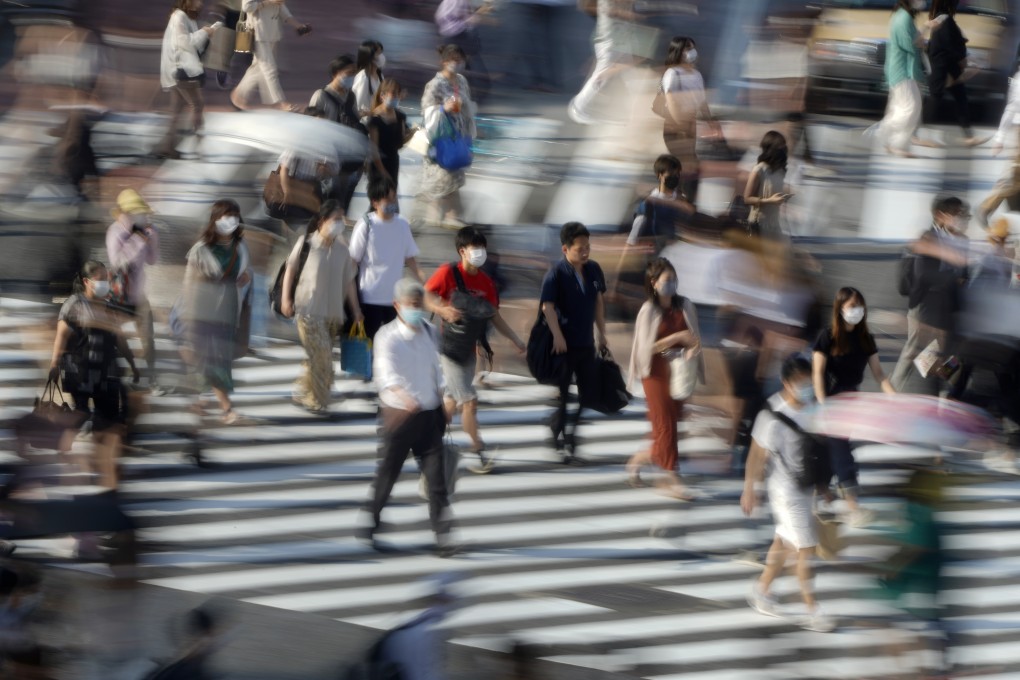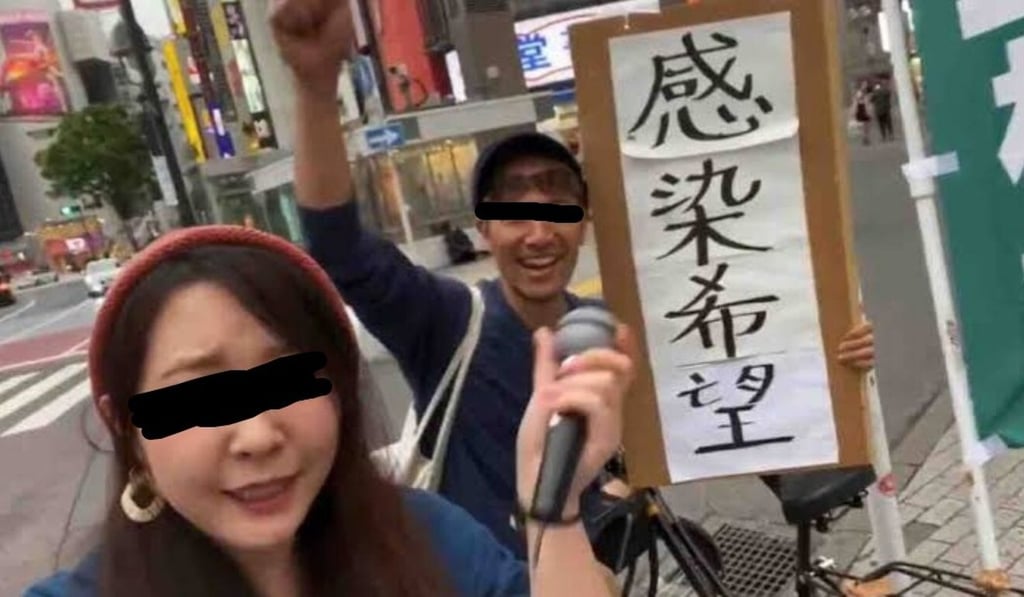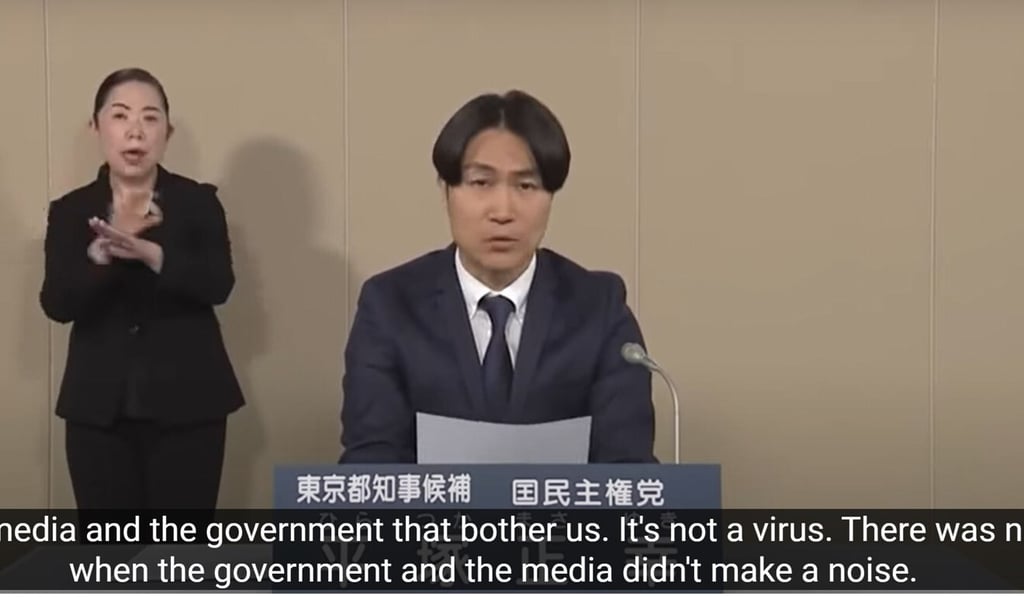Advertisement
Japan has anti-mask protesters too, led by a coronavirus-denying political hopeful
- Masayuki Hiratsuka ran for election as governor of Tokyo last month on a platform of pandemic denial, but attracted less than 1 per cent of the vote
- Undeterred, he and his followers gathered outside a busy Tokyo railway station on Sunday for an anti-mask protest – sparking an online backlash
Reading Time:2 minutes
Why you can trust SCMP

A small but highly visible demonstration in Japan’s capital against mask wearing and other measures to halt the spread of coronavirus has triggered a backlash against the head of a fringe political party who organised it and those taking part.
The three-hour protest on a congested plaza in front of Tokyo’s Shibuya Station on Sunday drew around 100 people, including families with babies and young children. Attendees did not wear masks and brandished placards saying they refused to practice social distancing, with others chanting that they were against any form of “self-restraint”.

Advertisement
Afterwards, organiser Masayuki Hiratsuka urged his followers to join him on the Yamanote Line – one of Tokyo’s busiest railway lines that connects many of the city’s major urban centres – to spread the group’s message.
The intention, as he explained in a YouTube video published the day before the protest, was for his followers to confront other passengers on the train and make them “feel stupid” for wearing masks. In the end, only a dozen or so protesters went along for the ride.
Advertisement

Advertisement
Select Voice
Select Speed
1.00x